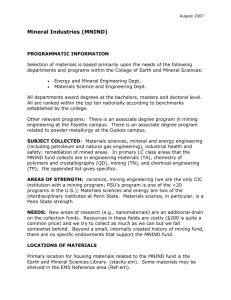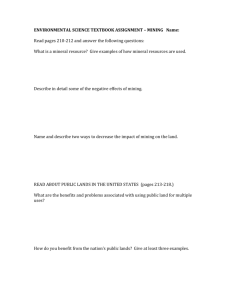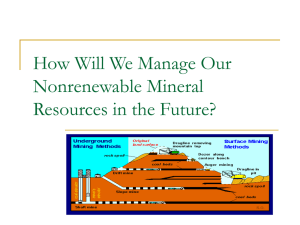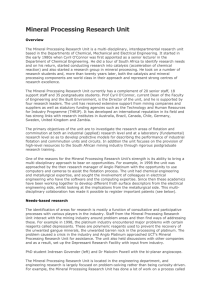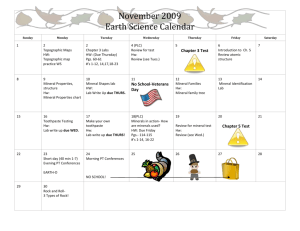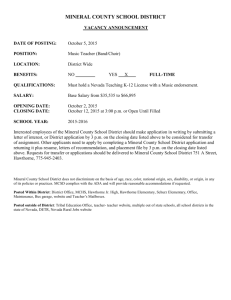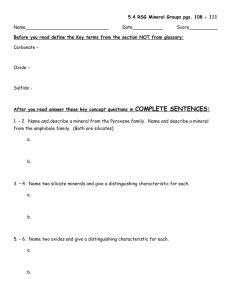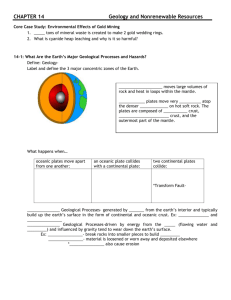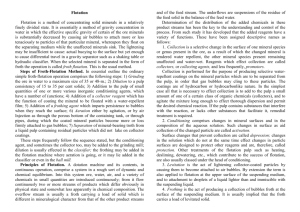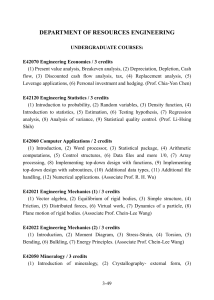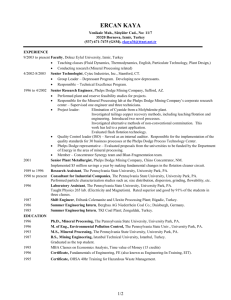Course Specifications
advertisement
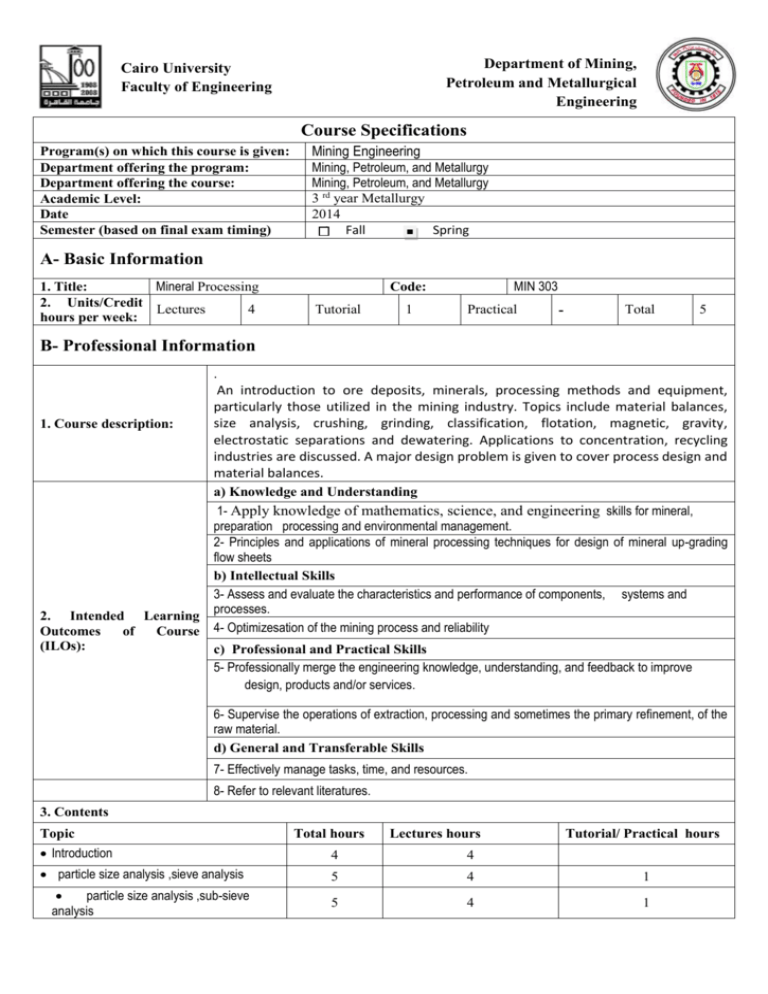
Department of Mining, Petroleum and Metallurgical Engineering Cairo University Faculty of Engineering Course Specifications Program(s) on which this course is given: Department offering the program: Department offering the course: Academic Level: Date Semester (based on final exam timing) Mining Engineering Mining, Petroleum, and Metallurgy Mining, Petroleum, and Metallurgy 3 rd year Metallurgy 2014 t Fall Spring A- Basic Information Mineral Processing 1. Title: 2. Units/Credit Lectures 4 hours per week: MIN 303 Code: Tutorial 1 Practical - Total 5 B- Professional Information 1. Course description: . An introduction to ore deposits, minerals, processing methods and equipment, particularly those utilized in the mining industry. Topics include material balances, size analysis, crushing, grinding, classification, flotation, magnetic, gravity, electrostatic separations and dewatering. Applications to concentration, recycling industries are discussed. A major design problem is given to cover process design and material balances. a) Knowledge and Understanding 1- Apply knowledge of mathematics, science, and engineering skills for mineral, preparation processing and environmental management. 2- Principles and applications of mineral processing techniques for design of mineral up-grading flow sheets b) Intellectual Skills 3- Assess and evaluate the characteristics and performance of components, systems and processes. 2. Intended Learning Outcomes of Course 4- Optimizesation of the mining process and reliability (ILOs): c) Professional and Practical Skills 5- Professionally merge the engineering knowledge, understanding, and feedback to improve design, products and/or services. 6- Supervise the operations of extraction, processing and sometimes the primary refinement, of the raw material. d) General and Transferable Skills 7- Effectively manage tasks, time, and resources. 8- Refer to relevant literatures. 3. Contents Topic Introduction particle size analysis ,sieve analysis particle size analysis ,sub-sieve analysis Total hours Lectures hours Tutorial/ Practical hours 4 4 5 4 1 5 4 1 Primary Crushers 5 4 1 Secondary crushers 5 4 1 Grinding mills 5 4 Industrial screening 5 4 1 5 4 1 5 4 1 5 4 1 Heavy media separation 5 4 1 Magnetic separation 5 4 1 High-tension and electrostatic separation 5 4 1 Theory of Froth flotation 5 4 1 Flotation machines and circuits 5 Case studies 5 Classification – hydraulic, mechanical classifiers Hydrocyclone Gravity separation 4. Teaching and Learning Methods 1 4 1 4 1 Lectures () Practical Training/ Laboratory ( ) Seminar/Workshop ( ) Class Activity ( ) Case Study ( ) Projects ( ) E-learning ( ) Assignments /Homework ( ) Other: 5. Student Assessment Methods Assessment Schedule Week -Assessment 1; Assignment Bi-weekly -Assessment 2; Midterm Exam Eighth week -Assessment 3; Final Exam Fifteenth week Weighting of Assessments -Mid-Term Examination - Problems and assignments -Final-term Examination -Total 20 points 25 points 80 points 125 points 6. List of References B.A.Wills "Mineral Processing Technology ", Jhon Wiley and sons, 2007. Principles of Mineral Processing Editors: Maurice C. Fuerstenau, Kenneth N. Han Published by Society for Mining, Metallurgy, and Exploration - 2003 . SME Mineral Processing Handbook (Order No. 4436))Hardcover – February, 1986 by Norman L. Weiss (Editor) [SME PDF] Mineral Processing Plant Design, Practice, and Control Proceedings, Volumes 1-2 Edited by: Mular, Andrew L.; Halbe, Doug N.; Barratt, Derek J. © 2002 Society for Mining, Metallurgy, and Exploration (SME) . D.L.Khoury, Coal Cleaning Technology, Noyes Data Corporation, 1981. . A.J .Lynch, N.W.Johnson, E.V.Manlapig, C.G.Thorne, Mineral and Coal Flotation Circuits, 1981. 7. Facilities Required for Teaching and Learning Mineral Processing Lab Computer, Data show. Course Coordinator: Prof. Dr. Ahmed Abdallah Sadeek Seifelnassr Head of Department: Prof. Dr. E.M. Elbanna
